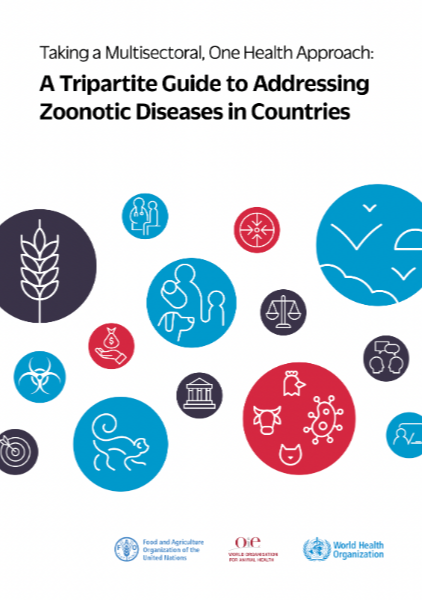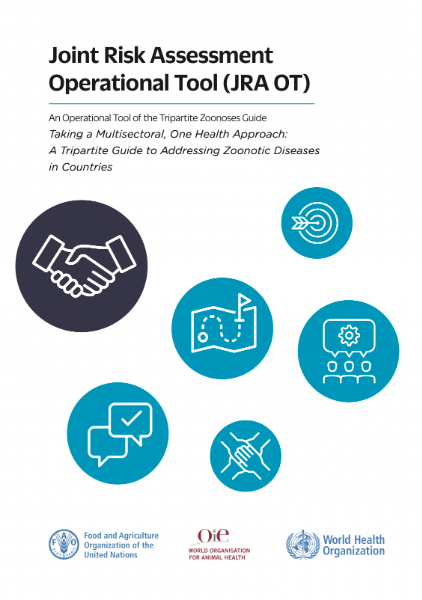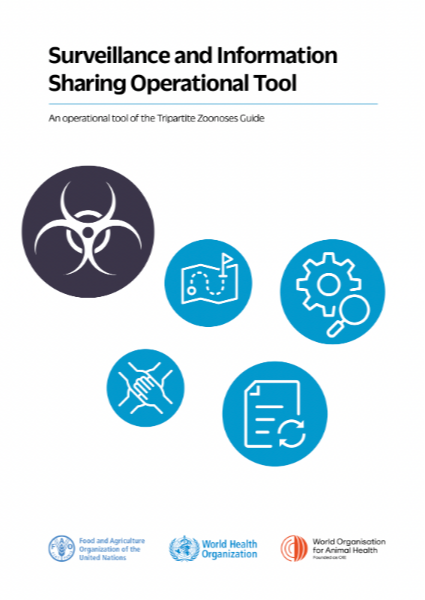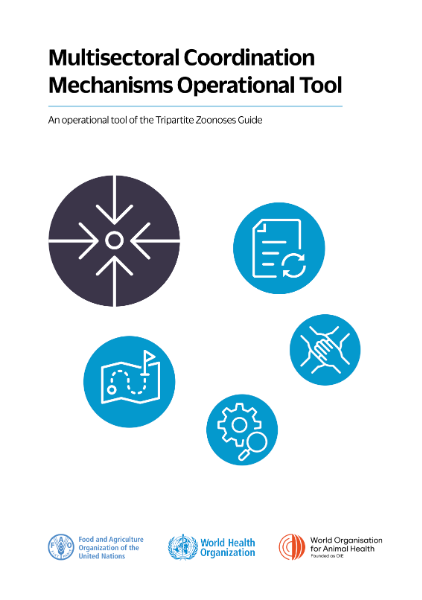One Health is an integrated, unifying approach that aims to sustainably balance and optimize the health of people, animals and ecosystems. It recognizes the health of humans, domestic and wild animals, plants, and the wider environment (including ecosystems) are closely linked and interdependent.
FAO ECTAD promotes One Health to Member Nations to prevent, detect and control diseases that spread between animals and humans (zoonosis) and antimicrobial resistance (AMR). Better animal health will ensure our health and the safety of our food systems, prevent environment-related human and animal health threats and combat many other challenges.
Improving collaboration and coordination mechanisms among multisectoral stakeholders through One Health
One Health is essential to preventing and limiting the impact of diseases affecting humans, animals and the environment. As part of the Regional Quadripartite One Health Coordination Group for Asia and the Pacific, together with the World Health Organization (WHO), World Organisation for Animal Health (WOAH) and United Nations Environment Programme (UNEP), FAO helps countries to implement effective collaborative One Health strategies and ensure a consistent and harmonized approach in addressing disease threats.
FAO enhances animal health sector contribution to global health security by strengthening the implementation of Global Health Security Agenda (GHSA) action packages, identifying strengths and gaps based on Joint External Evaluation results and other possible interventions for GHSA implementation.
FAO works together with the regional networks to enhance coordination and collaboration among multisectoral partners and stakeholders, including Association of Southeast Asian Nations (ASEAN), South Asian Association for Regional Cooperation (SAARC), Southeast Asia One Health University Network (SEAOHUN), universities and other One Health initiatives in the region.
Enhancing institutional and multidisciplinary workforce capacity to tackle animal and public health emergencies
As the ability to rapidly identify and respond to emerging infectious diseases and AMR is critical in animal health, FAO supports countries in building the capacity of animal health professionals in various skillsets and reinforces veterinary education through the field epidemiology training program for veterinarians (FETPV) to strengthen One Health epidemiology workforce capacity.
Providing effective online learning tailored to the regional needs, FAO's Virtual Learning Centre (VLC), an online and interactive platform designed to deliver virtual blended learning courses, delivers online One Health courses to professionals across the region, leading to strengthened veterinary and One Health capacity.
Facilitate operationalization of regional and national One Health platforms
FAO, WHO and WOAH support and facilitate the application of the Tripartite Zoonosis Guide (TZG) for countries in taking a multisectoral, One Health approach to address zoonotic diseases. It provides principles, best practices and options to assist countries in achieving sustainable and functional collaboration at the human-animal-environment interface.
Other One Health tools implemented in the region are Joint Outbreak Investigation (JOIN) Tool, International Health Regulations-Performance of Veterinary Services (IHR-PVS) National Bridging Workshop (NBW) and One Health Zoonotic Disease Prioritization (OHZDP). FAO also supports development and implementation of One Health action plans for multisectoral engagement in preparedness and response to priority zoonotic diseases.
.jpg?sfvrsn=c987fdd3_1)
Joint risk assessment operational tool (JRA OT)
A guide for joint qualitative risk assessment and informing policy development
.jpg?sfvrsn=de081217_1)
Surveillance and information sharing operational tool (SIS OT)
A collaborative approach for effective multisectoral surveillance and sharing information
.jpg?sfvrsn=e8deae96_1)
Zoonotic and Animal Disease Prioritization
Prioritizing zoonotic diseases, One Health threats and animal diseases with harmonized and optimized efforts
Publications






